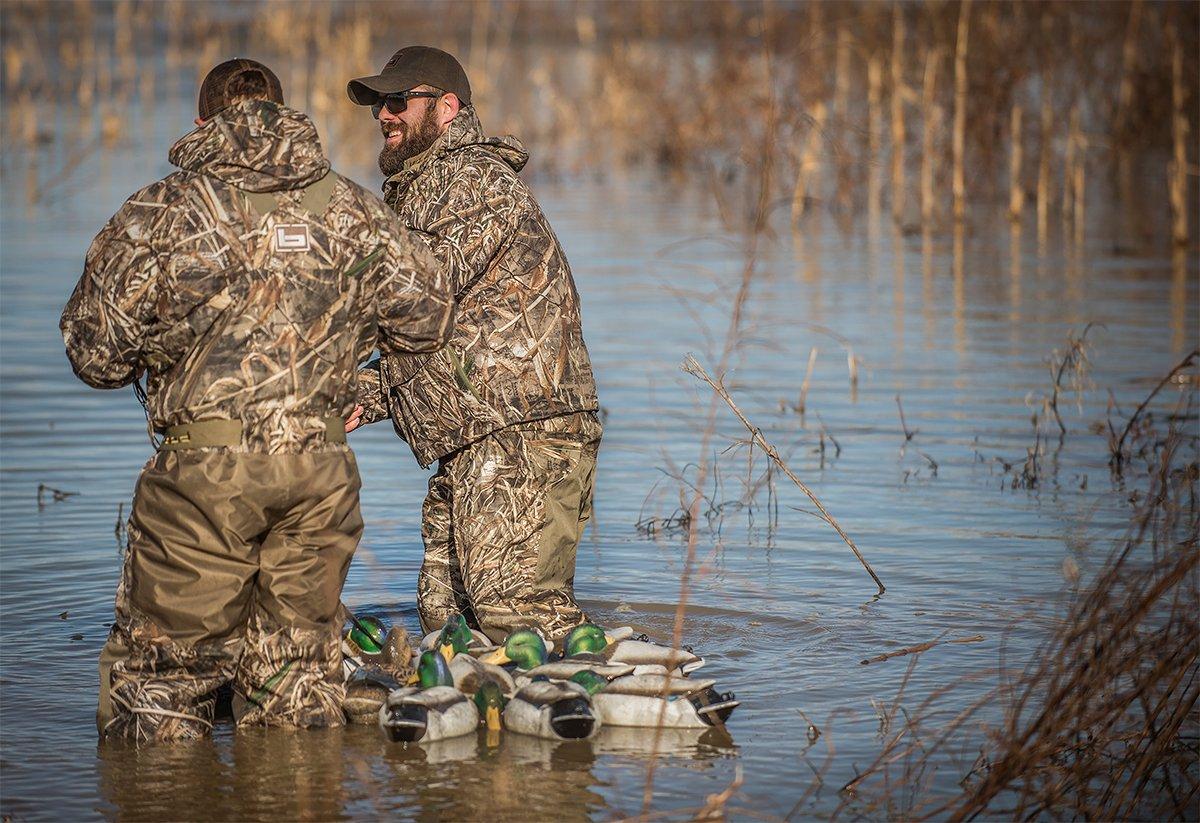Expectations or situations often dictate how we view waterfowl hunts
When you review a hunting journal or peruse old photos, days and episodes jump at you. Some leave you with a lasting sense of happiness or fulfillment. Others sting you and make you shake your head.
Of course, that prompts an obvious question: why? Specifically, why do duck hunters feel satisfied after some hunts or seasons yet disappointed in others that, on the surface, might not seem that different? It's an interesting topic, and answers will vary widely depending on the hunter and circumstances.
Obviously, you'd expect that most hunters would be satisfied by hunts during which they shot limits of their target ducks, whether that was five greenheads in a North Dakota cornfield or a full strap of trophy common eiders on the East Coast. Their expectations had been confirmed. Just as obviously, slow days when hunters got skunked, shot fewer ducks or perhaps chose to take what they deemed to be less desirable ducks — shovelers or buffleheads, for example — might leave folks feeling unsatisfied. In those cases, the hunt probably hadn't met their expectations, so they felt let down.
But many gray areas lie between those polar examples. Situations often play a large role. This past season, for example, I shot three wood ducks in 90 minutes opening morning at a Wisconsin flowage. Two weeks later, I killed two woodies during an afternoon walk along a colorful stream. The latter hunt was far more enjoyable than the former. The flowage was crowded, and I had to switch setups before finally killing my ducks and beating a retreat to escape the incessant gunfire. Conversely, I jump-shot the stream during a relaxing golden autumn day when I didn't expect to get much shooting, and the duck encounters I experienced were a bonus.
I think state of mind also greatly influences your opinion of satisfaction. Years ago in South Dakota, I'd experienced a bonanza week of hunting but awoke the final day to find much of the landscape had frozen and bird numbers had diminished. That afternoon, I shot two pheasants and one drake bluebill, and it was by far the best hunt of the trip. The reason was simple: I'd known beforehand it would be the final prairie hunt for my old retriever, Belle, and seeing her track down that sailed scaup in the snow was better than any of the limits I'd taken the previous few days.
And of course, individual personalities factor into the equation. Some guys will only be satisfied with a limit of their target ducks. Others just relish the experience and take good days with the bad. And still others bounce between those extremes depending on their mood or the situation. Further, it's safe to assume that younger hunters will be more goal-oriented, but older, more experienced hunters have greater perspective and don't get too high or low based on the number of ducks in their boat.
I guess I'm probably somewhere in the middle, though I'll admit that I'm generally happier when I've shot five or six ducks compared to days when I take one or two. Still, experience has revealed that one- or two-duck days are inevitable, even when you hunt hard. And in hindsight, those days are far better than time in the office or a recliner.
Some of my hunting buddies are like me. Others have progressed farther and just enjoy getting out more than killing birds. And a few still make every effort to maximize their take each day, hunting till the final minutes in the hopes of getting one more duck.
We're all unique, and that's the point. Everyone enjoys duck hunting for different reasons and in their own way, so the factors that determine satisfaction vary greatly. It's only important that you go afield and enjoy it. The Lord only gives you a finite number of days to find your version of satisfaction in the duck marsh. Make the most of every one.
Click here for more Realtree waterfowl hunting content. And check us out on Facebook.







